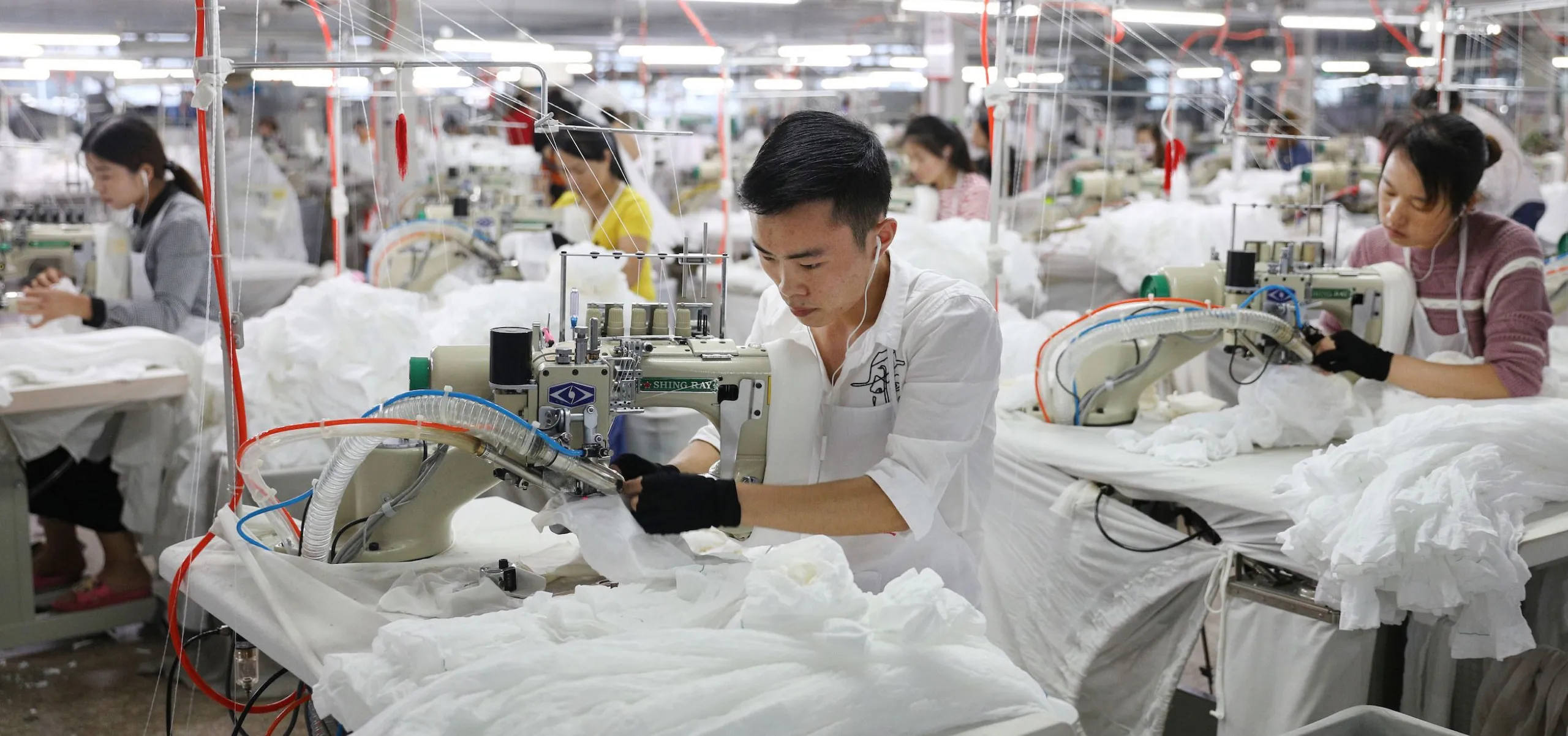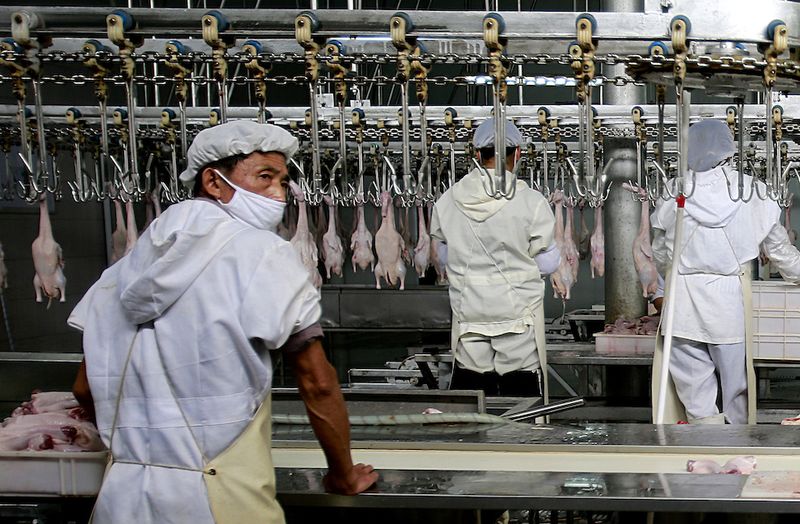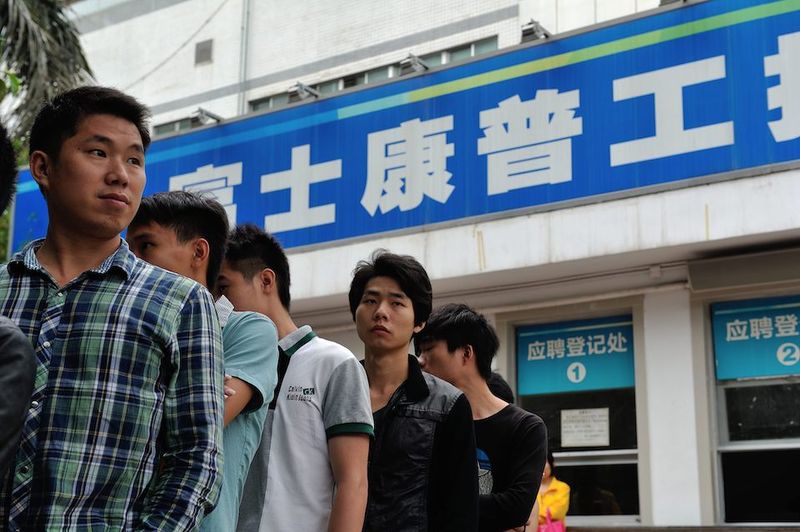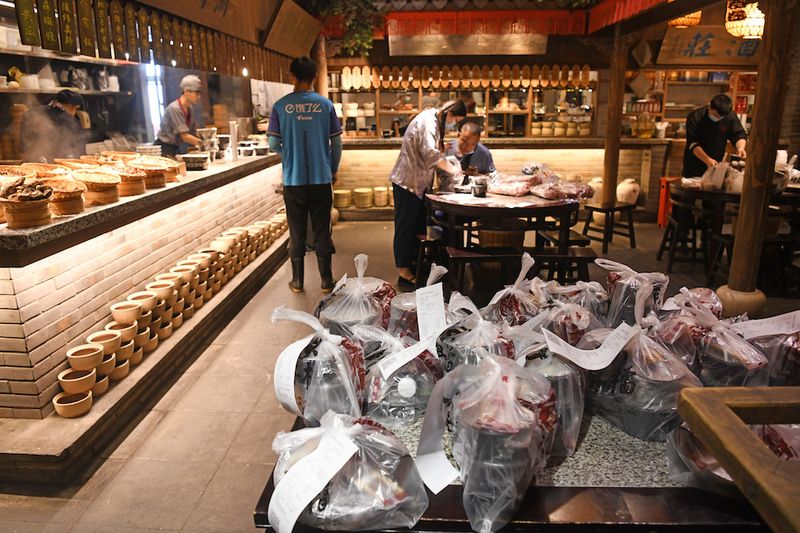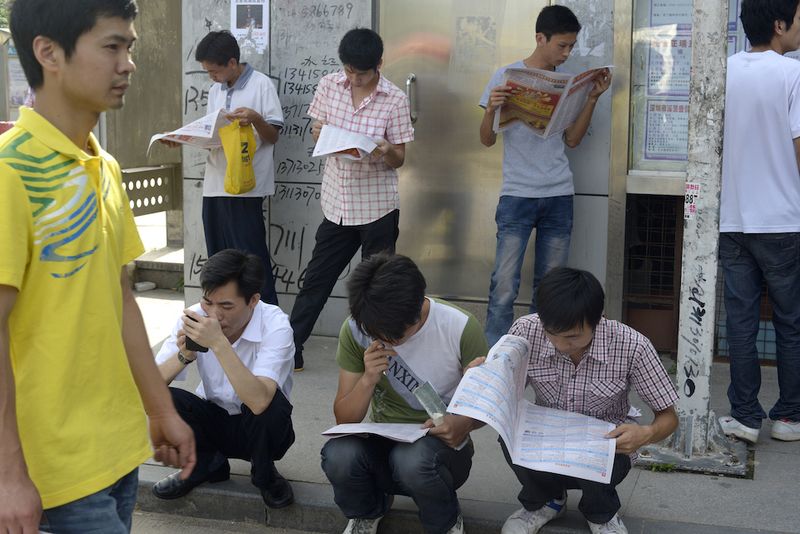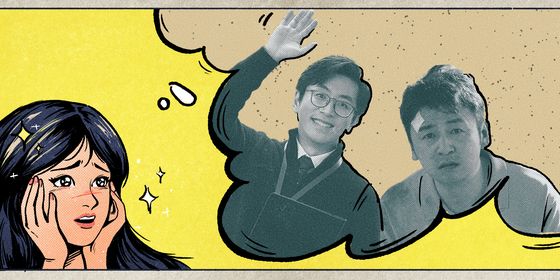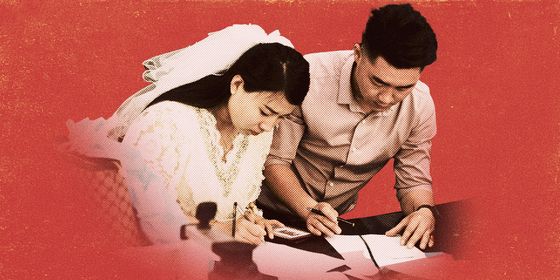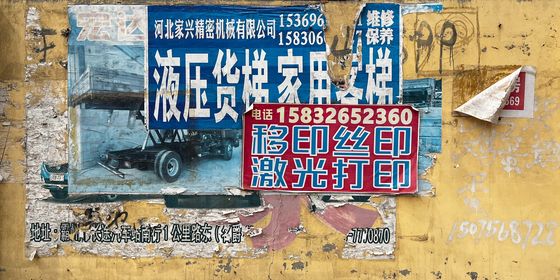Pyramid Schemes, Menial Work, Debt—Over 40 years on from China's reform and opening, one young worker describes life in the country's factories today
An “underachiever”
I was born in 1995, but my family registered the year of my birth as 1992 on my ID card to evade the One Child Policy. I was admitted to a key senior high school in our city, but then I started to slack off and skip school for fun. Neither my teachers nor my parents paid much attention to me. In my second year, I dropped out and went to work at Foxconn in Shenzhen with some students from the neighboring vocational school. It was right around the time that some factory workers were committing suicide by jumping out of buildings.
I worked at Foxconn for six months, but did not earn much money. The work there was a real challenge: There were frequent all-nighters. While at school, I could stay up all night playing video games and still have energy for my studies the next day, but staying up late to work on the assembly line was totally different. It wears down your spirits after a while, so I resigned.
Even during my school days, I showed some signs of being a delinquent: I was not satisfied with the status quo, and went into the world earlier than my peers. As for my childhood friends, some only had primary school education, some junior middle school, while some went to senior high school. Each entrance examination is a fork in the road, and each one of us chose a different direction.
After leaving Foxconn, two guys from my hometown told me they earned 3,500 RMB a month in a machinery factory in Shandong province and asked if I would like to join them. The salary was quite high, so I said yes. I packed my backpack, boarded a train, and stepped right into a pyramid scheme. The train took me to Weihai, and from there, I took a coach to Wendeng. I’m not bad with directions, and can think on my feet. While waiting for my friends to meet me, I walked around the inter-city bus station and memorized the route I’d taken to get here.
When my friends arrived, they took me to the supermarket for a meal. Soon, a woman joined us and kept talking with me. Her enthusiasm toward me, a first-time acquaintance, put me on the alert, since I was ordinary—not rich or handsome. It didn’t feel right. Therefore, I deposited my bag at the supermarket when they offered to show me around the area.
As I suspected, they took me to a place…it was quite mysterious: right next door to a police station, with two guards at the entrance. After I entered, I saw people sitting on a row of stools, with three vacant seats. My friends led me to the seats and sat down. A mentor was lecturing passionately about the products, how to get relatives to invest, how to make 10 million RMB with 5 million RMB’s investment, and more. I knew I’d been conned.
If you want to run away, remember to tie your shoelaces first. It’s very important. I sat there for a while, and then excused myself to use the toilet. Once I was out of the toilet, I tied my shoelaces, rushed to the gate, kicked the two guards, and ran downstairs. They gave chase. I did not run to the police station next door, as I was afraid they were all in cahoots.
I ran to the street at full speed, but they soon caught up. Due to crowds on the street, they didn't dare come over and seize me. I pretended I was heading to the inter-city bus station, but in fact, I hid nearby and saw them leave in a taxi. I then hailed a taxi to the bus station and saw them there. The taxi driver said there was a railway station nearby, so I asked him to drive me there. It was only when I arrived at the railway station that I began to feel afraid. I bought a ticket for the earliest available train and went home. After that near-miss, I felt lucky that I kept some sense of alertness toward the world. I could have come to a tragic end if I’d been a bookworm. The problem is that schools don’t teach students how to adapt to society, so those who don’t stay in school are likely to get into trouble out there in the world.
From worker to small business owner
I went back to school and muddled through my senior year. My math and English scores were very poor, but still, I managed to enter a “third-tier university” in Weifang, Shandong. You can see how easy it was to get into such a university. Students in the following years were not so lucky, because many third-rate universities and private academies were shut down by the authorities. I dropped out after my first year and entered the army. That school was so awful that I felt it was useless to waste four years there getting a diploma.
I joined the army in 2013, and was discharged at the end of 2015. I did not return to university, but instead found a job at a food factory in eastern Shandong. A friend I’d made from a previous part-time job introduced me there. The large factory mainly specialized in slaughtering and cutting chicken and ducks. It had high quality standards, including specifications on the size and quality of each part of the animal. As a quality inspector, my job was to examine whether the products met the requirements. I could earn 3,000 to 4,000 RMB per month.
I worked there for over a year. In 2016 I went to Suzhou, where my older brother was, and worked in a small factory for six months. At the end of that year, I went to Shanghai and became a real estate agent. I did not feel at ease with factory work, and was unwilling to waste my youth that way.
To be frank, I could already afford to purchase an apartment in my hometown after those two years, thanks to the then-booming real estate industry. At that time, I worked in the Songjiang district of Shanghai, but mainly sold apartments from Jiaxing and Jiashan, Zhejiang province, to Shanghai locals or white-collar workers. Those middle-aged female buyers were amazing; one person could buy as many as 20 apartments in a batch. I sold 40 apartments in some months and earned 150,000 RMB. At that time, the house price in Jiaxing was 4,000 RMB per square meter, but now it’s 12,000 RMB.
Real estate agents seem to make quick money, but the policies and the market are always changing. If the housing market in one place declines, we leave. When Zhejiang and Shanghai started to regulate the industry, I went to Wuxi in Jiangsu province. Why did I choose Wuxi? I did some research of the market in Zhejiang, Jiangsu, and Shanghai. Wuxi has high-quality education and many prestigious middle schools with a good high school enrollment rate. This could attract people to purchase homes there. At first, I worked on a new development, and sold several houses. But my boss owed me over 40,000 RMB in commissions. After waiting half a year, I quit.
Then, internet companies began to expand their market to Wuxi. I got a fake bachelor’s diploma, and bribed someone in Ele.me to get a marketing position in the company. I went door to door at restaurants and stores to persuade them to register on our food delivery platform. The salary was quite good. Two months later, however, the company discovered the diploma was fabricated and fired me.
When I was doing marketing, I came across a man who had once run a braised chicken-rice restaurant in Shanghai. He had bought an apartment in Wuxi, and was looking to open a restaurant here. We partnered up to open and run a restaurant together, each investing 150,000 RMB. In fact, I did not have much money at that time, and most of my 150,000 RMB was paid by credit card.
The business failed soon after it opened. We spent lots of money renting a large sublet shop and refurbishing it. The restaurant looked good, and we employed two college students part-time. It went well in the first month, and the daily volume of business could reach 3,000 RMB. The situation changed in the second month: The food my business partner made was not bad, but was not popular among the locals; and we did not offer takeout or food delivery services. I knew the shop could only survive if we cooperated with food delivery platforms, but my partner disagreed. We argued over this a lot. One night, after failing to reach a consensus, we sublet the restaurant the next day in a rage.
It took a month to find someone to take over the restaurant, and brought us 210,000 RMB. In total, my business partner and I each lost around 70,000 RMB. Thanks to my credit card payment, I was heavily in debt. The money I earned from the real estate industry should have brought me closer to financial freedom. But the fact is, we had not acquired any exceptional skills, and were probably doomed to lose money.
After the restaurant failed, I got anxious to make money as soon as possible. The more anxious I was, the easier I fell for scams.
At the end of 2018, a girl tricked me into going to Guangxi and I almost fell into another pyramid scheme. I met her over the internet while I was running the restaurant. We chatted online for nearly half a year. According to her, she came from Fuyang, Anhui province, and was running a shop with her uncle in Zhanjiang, Guangdong province.
I still clearly remember the day I arrived in Zhanjiang. It was drizzling, and I was running a fever. The girl came to meet me at the station with another person. After we got in the car, she wouldn’t let me check my phone, explaining we should listen to music together to cultivate affection. When the car stopped, we were at the Beihai Development Zone in Guangxi. It was only after getting out of the car that I realized we were in another province. I looked around, and noticed there was both a bus and a railway station nearby. But I knew I was trapped again. Because of my fever, I had no choice but to stay with them that night. The next morning, I had a shot at a clinic and went back around 11:00 to their place and had lunch to recharge. Then, I remembered the rule—and tied my shoelaces fast. That morning, I took my driving license, ID card, and all of my bank cards, but left my clothes and my bag in the room.
After lunch, I told them I needed another shot and would be back afterward. After getting out, however, I blacklisted the girl’s contact on QQ and WeChat. I hailed a taxi and headed to the bus station. At the beginning, the driver refused to take the fare, saying he was too busy, but changed his mind after I gave him 50 RMB. I bought a coach ticket leaving after 12:00 for Nanning, and begged the middle-aged woman at check-in to let me in immediately, because a pyramid scheme gang was chasing me. She agreed. Along the way, the girl kept calling me. I answered the phone only after boarding on the coach, and told her I was already on my way to Nanning. After the coach left Beihai, I blacklisted her phone number.
Starting over
In 2019, I gritted my teeth and returned to the food factory in Shandong to repay my debts. It had a low cost of living, so I could use 6,000 RMB of the 7,000 RMB I earned each month to repay my credit cards. During that period, I got up at 4 in the morning, and sometimes worked until 8 in the evening, inspecting and sometimes helping with the slaughter. We often had to do the slaughter manually to meet clients’ quality demands. One efficient worker could process thousands of ducks per day. After toiling for a whole year, I finally repaid all my debts.
Hardships alter your mindset. While working at the food factory that year, I prepared for the adult college entrance exam for part-time college programs, since full-time college programs were not possible for me. Many of my senior high school classmates had got into prestigious universities, but I have not regretted my choices. What’s done is done. There are various crossroads in life and everyone has their own choices and experiences. I may not do well at one point in my life, but I could do well in the next. I can accept having an ordinary life, even if it’s for a lifetime.
I got a diploma from the adult education program. Though it could not qualify me to sit for the civil servants’ exam as I had hoped, it might help me to apply for a teacher’s post in future. My former college teachers told me my cognitive and learning abilities are not bad; they said I had outperformed many of their former students.
These last few years, I’ve worked in a Japanese-funded factory in Suzhou, but I’ve already suffered two occupational injuries: I broke my instep last year, and a shelf hit me while I was operating some equipment. I’m waiting for the industrial injury evaluation, and fortunately the factory is cooperative. Nevertheless, I’ll quit the job after I get the settlement. To be injured twice in the same factory within a year! What lousy luck! What’s more, after these two injuries I’ve faced increased pressure in the factory, since I’ve impacted the managers’ performance review.
I plan to go home for a while to get some rest and get rid of my bad luck. Then I’ll start thinking about marriage. I used to enjoy wandering, but faced with a car loan and mortgage, I’m longing for a stable life. I bought the car last year at 110,000 RMB by installments of 4,000 RMB per month. Everyone I knew owned cars, so I wanted one too. My father consented, since my family got a windfall after our land was acquired for the construction of a university town and we got two apartments in the resettlement package. Most of the time, though, I leave my car parked by the roadside. I’m afraid of Suzhou’s complicated roads and traffic, so I only dare to ride the elevated highways in the evening. To be frank, I’m willing to work in the city, but probably not to live here.
I am one of two sons in my family. My parents are farmers. When they were young, they mostly toiled on the land, and sometimes worked as plasterers during the off-season. I also got my father a job in that Shandong food factory through my connections. He is now over 50, and we no longer let him do heavy factory work, so now he works as a security guard. In fact, if you go to a labor market, you’ll see many migrant workers in their 50s and 60s. In the 1990s, they all left their hometowns to work elsewhere to support their family, and now, they are still working to earn money to buy apartments and betrothal gifts in preparation for their children’s weddings.
To some extent, it was due to my family’s influence that I dropped out of school. At that time, my parents and relatives all said that a college education was worth fuck-all and I was better off working instead. These types of notions have misled and harmed many people. If I ever have a child, I won’t pressure them to give up their studies, no matter how they do at school, at least not before they graduate from university. If they dare drop out, I’ll beat them. In the meantime, I will take them traveling, like parents do in the big cities, to teach them more about the world.
Written by Zhang Congzhi (张从志)
Narrated by Xiao Shuai
Translated by Tan Yunfei (谭云飞)
Originally published in Sanlian Lifeweek magazine





